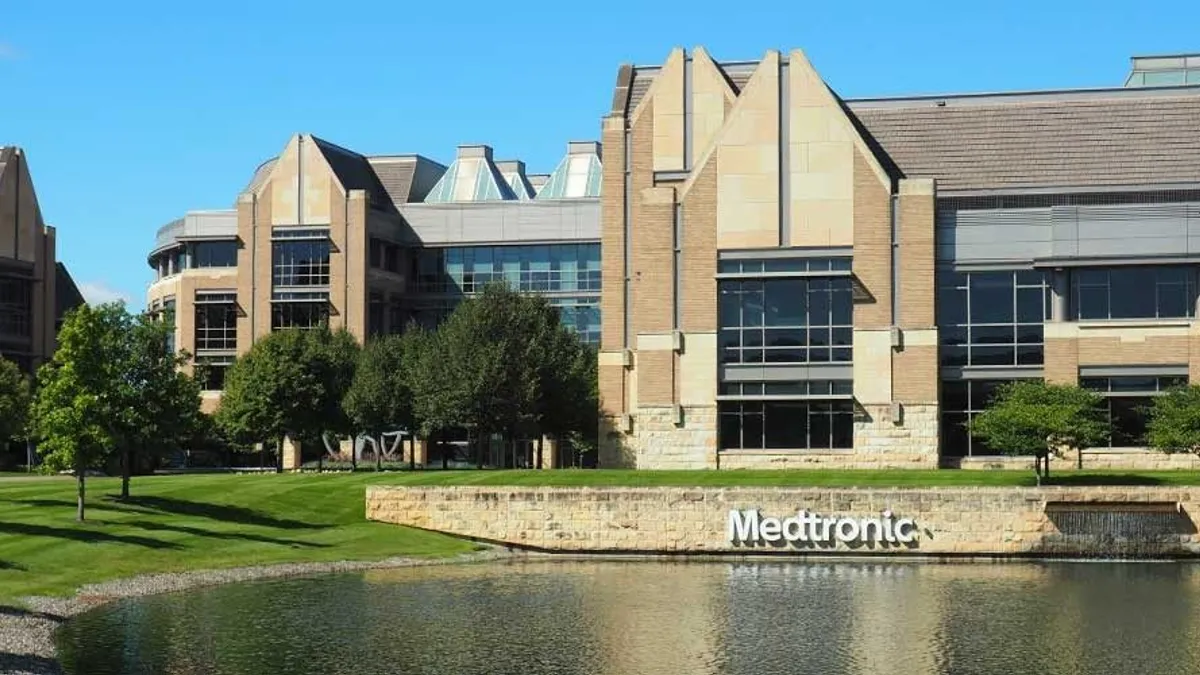Dive Brief:
- Medtronic has presented three-year data on the effect of its renal denervation system on the time patients with high blood pressure spend in their target therapeutic range.
- Some of the evidence comes from further analyses of the three-year SPYRAL HTN-ON MED data that Medtronic first shared last month. The analysis found time in target range (TTR) increased from 0% to 28% in the three years after treatment with Medtronic’s renal denervation system Symplicity Spyral. TTR in the sham control group rose from 0% to 13% over the same period.
- Medtronic analyzed data in the Global SYMPLICITY Registry (GSR) to find further evidence of the effect of renal denervation on TTR. In that assessment, TTR increased from 28.2% three months after treatment to 34.9% three years after treatment.
Dive Insight:
Medtronic has continued to build the case for Symplicity Spyral as it waits on pivotal data that will show whether its failure to outperform the sham treatment at an interim clinical trial analysis is a blip or a portent of another setback for the renal denervation space. The company posted three-year data from one study in The Lancet last month and arrived at EuroPCR 2022 with fresh details of the results.
The new analysis focuses on TTR, a measure that the researchers said “has become an established and validated measure of control for chronic disease conditions” and is an independent measure of blood pressure control and an independent predictor of cardiovascular events.
The researchers estimated TTR by drawing a straight line between successive systolic blood pressure readings and calculating how long the line spent beneath the threshold.
Six months after treatment, the office systolic blood pressure of the 38 patients in the treatment group was below the 140 mmHg target 8.1% of the time, compared to 0.6% of the time in the 41-subject control group. TTR in the treatment group increased to 14.3% at year one, 22.4% at year two and 28% at year three. The TTR rose in the control group as well, but only reached 13% by year three.
Medtronic’s argument that renal denervation improves TTR is supported by an analysis of data on 3,000 patients in its Symplicity registry. The near-baseline TTR was higher in the registry, coming in at 28.2% at month three, while the figure continued to rise over the subsequent readouts to reach 34.9% by year three.
The concept of using renal denervation to treat high blood pressure suffered a setback in 2014 and now is closing in on its next test.
Medtronic is expected to report results from its pivotal trial this year.










